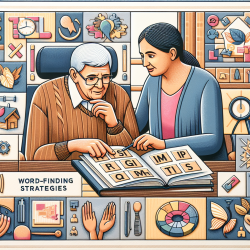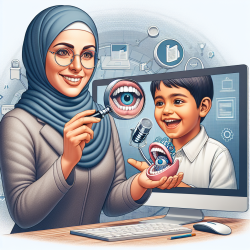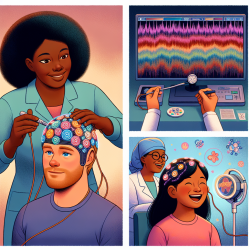Understanding Cognitive Skills in Medical Practice
In the ever-evolving landscape of medical practice, maintaining and enhancing cognitive skills is crucial for practitioners, especially those working with children. The research article "Cognitive perspectives on maintaining physicians’ medical expertise: II. Acquiring, maintaining, and updating cognitive skills" provides valuable insights into how practitioners can improve their skills through cognitive science principles.
The Dual-Process Theory
The dual-process theory is central to understanding medical decision-making. It posits two systems: System 1, which is fast and intuitive, and System 2, which is slow and analytical. While System 1 enables quick pattern recognition, it can also lead to biases. System 2, on the other hand, involves logical reasoning and is under the practitioner's control. Practitioners can benefit from recognizing when to rely on each system, enhancing their decision-making processes.
Maintaining Expertise Over Time
Research indicates that cognitive skills can decline over time without deliberate practice. The forgetting curve suggests that while some knowledge is retained, other material can be quickly forgotten if not regularly practiced. Practitioners should engage in continuous learning and distributed practice to mitigate these losses and maintain their expertise.
Addressing Age-Related Cognitive Changes
Aging can affect cognitive skills differently. While crystallized intelligence (knowledge) remains stable, fluid intelligence (novel problem-solving) may decline. Practitioners should be aware of these changes and adapt their learning strategies accordingly, ensuring they remain effective in their practice.
Keeping Up with Evolving Standards
Medical standards are continuously evolving, posing a challenge for practitioners to stay updated. Longitudinal assessment programs can help bridge this gap by providing ongoing education and feedback. These programs can enhance familiarity with new standards and improve practitioners' confidence in implementing them.
Implementing Research Insights
Practitioners can implement the research insights by:
- Engaging in regular, distributed practice to reinforce learning.
- Utilizing both System 1 and System 2 thinking strategically.
- Participating in longitudinal assessment programs to stay current with evolving standards.
- Focusing on feedback to identify strengths and areas for improvement.
By integrating these strategies, practitioners can enhance their cognitive skills, leading to better outcomes for their pediatric patients.
To read the original research paper, please follow this link: Cognitive perspectives on maintaining physicians’ medical expertise: II. Acquiring, maintaining, and updating cognitive skills.










